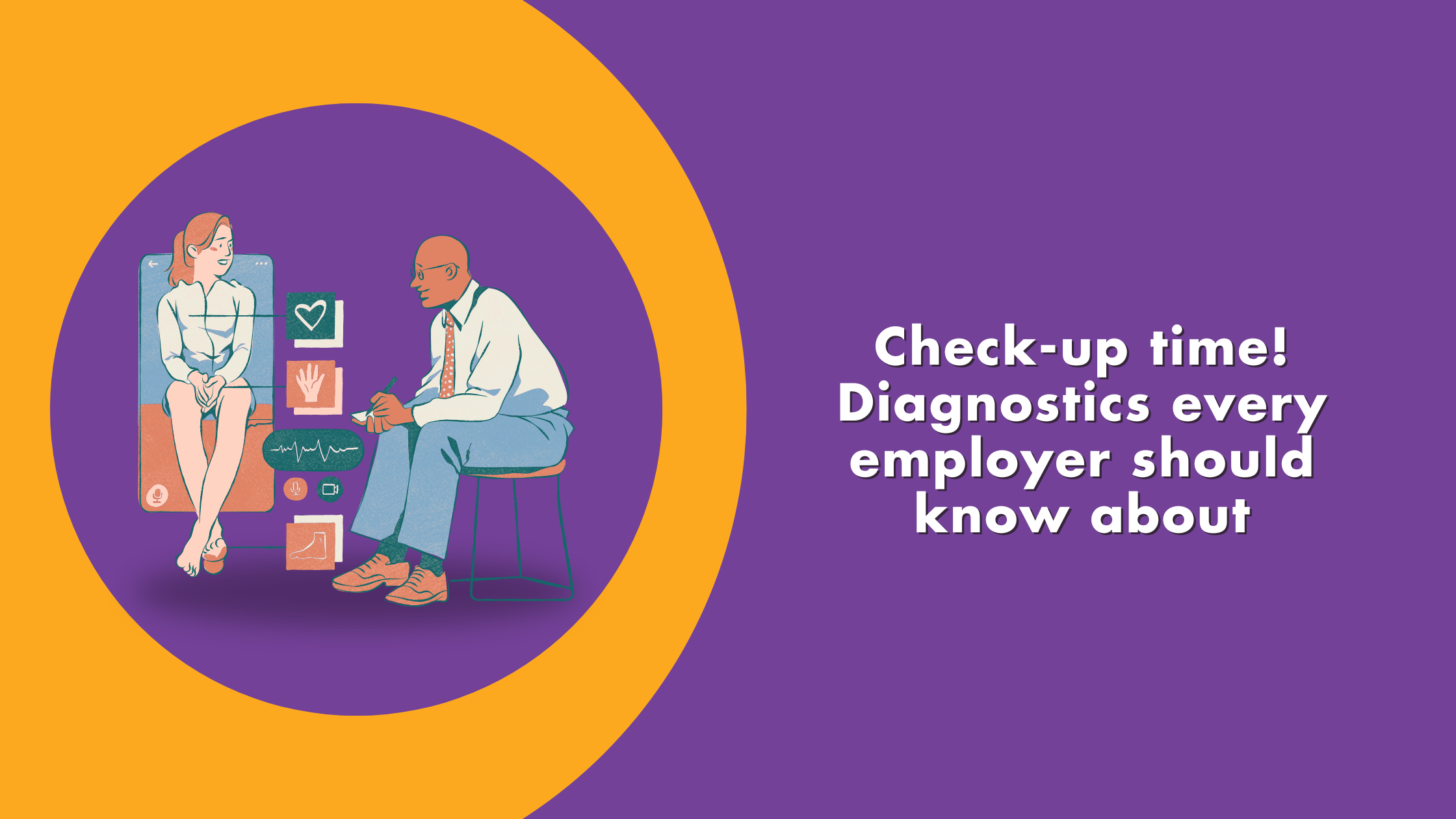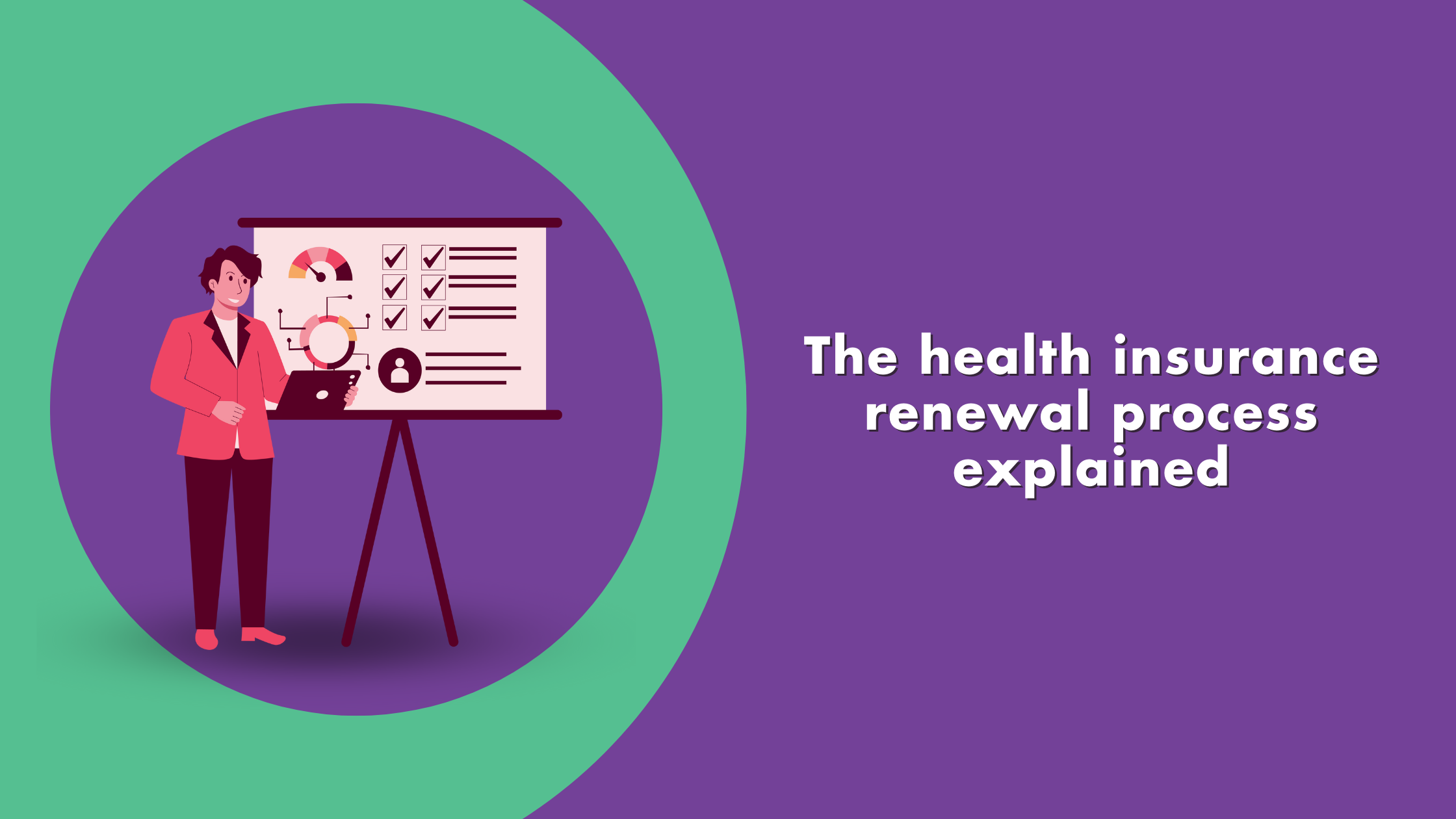Every Business Health Insurance policy gives you access to some form of diagnostic testing.
In layman’s terms, these are tests or procedures used to detect a disease or health condition.
And the earlier you can find out the cause of an ailment, the better.
The diagnostics covered on a health insurance plan differ depending on whether it’s a premium plan with all the bells and whistles or a more basic ‘budget-friendly’ plan.
For example, a premium corporate health insurance policy may include a full annual physical assessment which you wouldn’t expect to find on a standard health policy aimed at small businesses.
Nonetheless, even the most basic plans cover a lot of ground.
Let’s look at some of the common diagnostics you might expect to find…
Need help finding a suitable health insurance policy for your business? Hooray compares policies from across the market to ensure you find the right policy at the right price. Arrange a free consultation on 01273 222805 or hello@hoorayinsurance.co.uk.
6 health diagnostics commonly found on Business Health Insurance policies
1. GP services
GP consultations are usually your first port of call. A good GP will listen carefully to any health concerns you might have and, based on their medical knowledge, help diagnose what the problem might be or refer you to someone who can.
They can also perform basic health assessments like blood pressure checks, blood tests and take urine samples to help diagnose a wide range of potential issues.
2. Specialist conditions
A GP might refer you to specialist consultants, including heart specialists, physiotherapists, dermatologists, urologists, lung specialists or even psychologists – to name a few!
3. Specialist diagnostic tests
A wide range of specialist diagnostics can be included on your policy, including:
- X-rays: X-rays are usually used to check bones and joints but can also be used to spot any irregularities with soft tissues too.
- MRI scans: Magnetic Resonance Imaging scans are usually used to diagnose (or dismiss) more serious problems like tumors, injuries, brain injuries/diseases, spinal cord problems, strokes and eye conditions.
- CT scans: CT scans use X-ray technology to create 3D images of the human body. These detailed images can then diagnose conditions like cancer, bone damage and strokes.
- ECGs (Electrocardiograms): ECG’s can help diagnose any potential heart issues by checking its speed and rhythm.
- Ultrasounds: ultrasound uses soundwaves to create an image of the inside of your body. This information can help check the wellbeing of an unborn baby, assess bone and tissue health, check for blood clots, and analyse breast tissue, among other uses.
4. Preventative screenings
Diagnostics are not just there to see if you have something wrong with you, they can also be used to predict the likelihood of illnesses or injuries occurring in the first place.
Blood tests, BMI tests, smear tests and bowel or prostate screening can all be used to this effect.
5. Mental health diagnosis
Mental health issues can’t be detected through any scan or test. Instead, therapists and psychiatrists can make diagnoses based on expert clinical observation. For example, anxiety, depression and heightened stress can all be identified by a suitable medical professional.
6. Self-service tools
Self-service is all the rage and health insurers are keen to jump on the bandwagon! Some group health policies include access to online symptom checkers, health risk assessments, or, in the case of Vitality, wearable health and fitness tech.
What diagnostics can I get on a Group Health Insurance plan?
It all depends on the size of your workforce and level of cover you choose. However, our friendly advisers will talk you through the features you can expect to receive based on your budget and workforce size.
A few considerations:
- Level of cover: Higher-cost policies are likely to provide a wider range of diagnostics than basic plans.
- Exclusions: Some policies may exclude pre-existing conditions or diagnostics related to chronic conditions.
- Limits: Some plans cap the number of consultations or tests covered annually.
- Network providers: Diagnostic services may need to be performed within an approved network of hospitals and clinics.
For straight answers to all your most pressing questions, get a free consultation and price comparison from our friendly team of award-winning experts. Contact 01273 222805 or hello@hoorayinsurance.co.uk.
Author

Author: Mel Dixon
Mel is a journalist, editor and digital content writer who has written extensively on issues affecting the small business community.
He trained as a journalist at Southampton Solent University which propelled him into a 12 year career as a freelance writer and communications professional.At the start of his freelance career, Mel launched the blog for accountancy firm Crunch and wrote a regular tax advice column for Photo Professional Magazine. He was a finalist in the Freelancer of the Year Awards 2010.Today, he writes about health insurance, employee benefits and employee wellbeing more generally.Mel keeps an eye on all the industry news and is a regular reader of Health & Protection, Cover Magazine, Employee Benefits and The Human Times, among other publications.









![_HPA24 Advice Firm of the Year [YELLOW] _HPA24 Advice Firm of the Year [YELLOW]](https://hoorayinsurance.co.uk/wp-content/uploads/elementor/thumbs/HPA24-Advice-Firm-of-the-Year-YELLOW-qwfw5zs3ef19fjq6cnwf697rj9gwqbf8o6443qptg0.png)
![_HPA24 Best Small Health Insurance Advice Firm [YELLOW] _HPA24 Best Small Health Insurance Advice Firm [YELLOW]](https://hoorayinsurance.co.uk/wp-content/uploads/elementor/thumbs/HPA24-Best-Small-Health-Insurance-Advice-Firm-YELLOW-qwfw5yu97kzz3xrji5hslrgaxvljimbic1gmmgr7m8.png)
![_HPA24 Best Sales & Retention Advice Team [YELLOW] _HPA24 Best Sales & Retention Advice Team [YELLOW]](https://hoorayinsurance.co.uk/wp-content/uploads/elementor/thumbs/HPA24-Best-Sales-Retention-Advice-Team-YELLOW-qwfw5yu97kzz3xrji5hslrgaxvljimbic1gmmgr7m8.png)
![_HPA24 Best Small Protection Advice Firm [YELLOW] _HPA24 Best Small Protection Advice Firm [YELLOW]](https://hoorayinsurance.co.uk/wp-content/uploads/elementor/thumbs/HPA24-Best-Small-Protection-Advice-Firm-YELLOW-qwfw5zs3ef19fjq6cnwf697rj9gwqbf8o6443qptg0.png)